Jieyang, a small city in eastern Guangdong, edged out two mega cities Shanghai and Hangzhou to rank fourth nationwide in express delivery, behind only Yiwu, Guangzhou and Shenzhen, according to data for 2022 from China's State Post Bureau revealed in March this year. Specifically, Jieyang has sent out 3.7 billion pieces of express delivery in a year with 26 million pieces handled in both import and export each day.
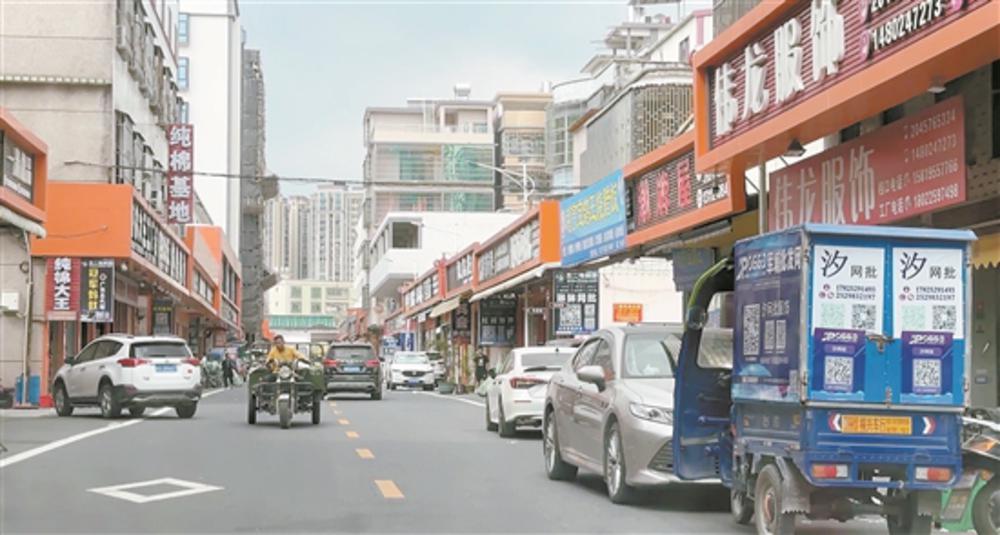
Behind such a miracle e-commerce achievement in Jieyang is Junpu, a small village with an area of only 0.53 square kilometres. In 2013, 12 local youths returned to their hometown to start their own business, marking the beginning of Junpu's way to developing e-commerce. In 2022, e-commerce sales here reached 5 billion yuan, attracting more than 5,000 e-commerce practitioners to drive more than 30,000 online shops in the village to cluster for development.
Twelve young people ignite the fire of e-commerce
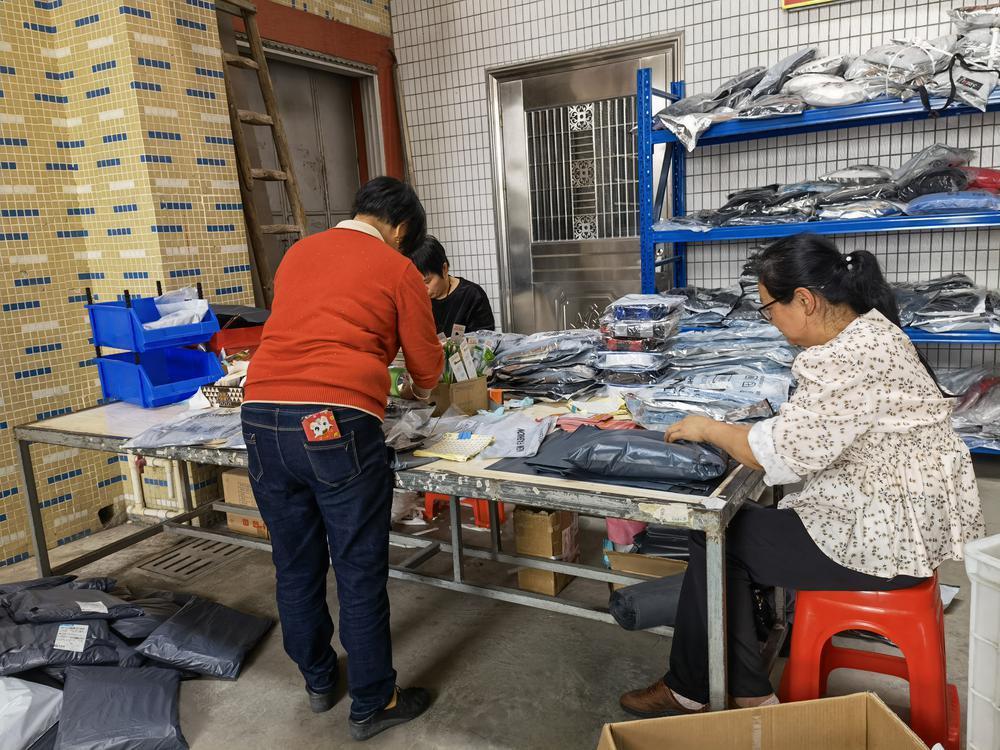
Junpu is in Xichang Town, Jieyang. Originally a natural village focusing on the food industry, Junpu was slowly eliminated from the market. Young people there were going out to work, and the infrastructure in the village was in a declining situation. As a result, Junpu was on the list of 79 villages to be improved identified by the Jieyang government at the end of 2011.
When working away from their hometown, Huang Weihong, Xu Zhuangbin and several other youths from Junpu were exposed to Taobao shops in Thirteen Hongs in Guangzhou by coincidence. A few years later, as the cost of doing business in first-tier cities rose, they tried to move their online business back to their hometown Junpu. These 12 young people were later known locally as the "Ocean's Twelve" of Junpu.
By June 2013, after about a year of spontaneous development, the village had a scale of more than 100 online shops and 14 physical shops, and so an e-commerce village formed.
Policy support injects momentum into the fire of e-commerce
The increasing number of websites in Junpu Village caught the attention of some leaders in the Jieyang government.
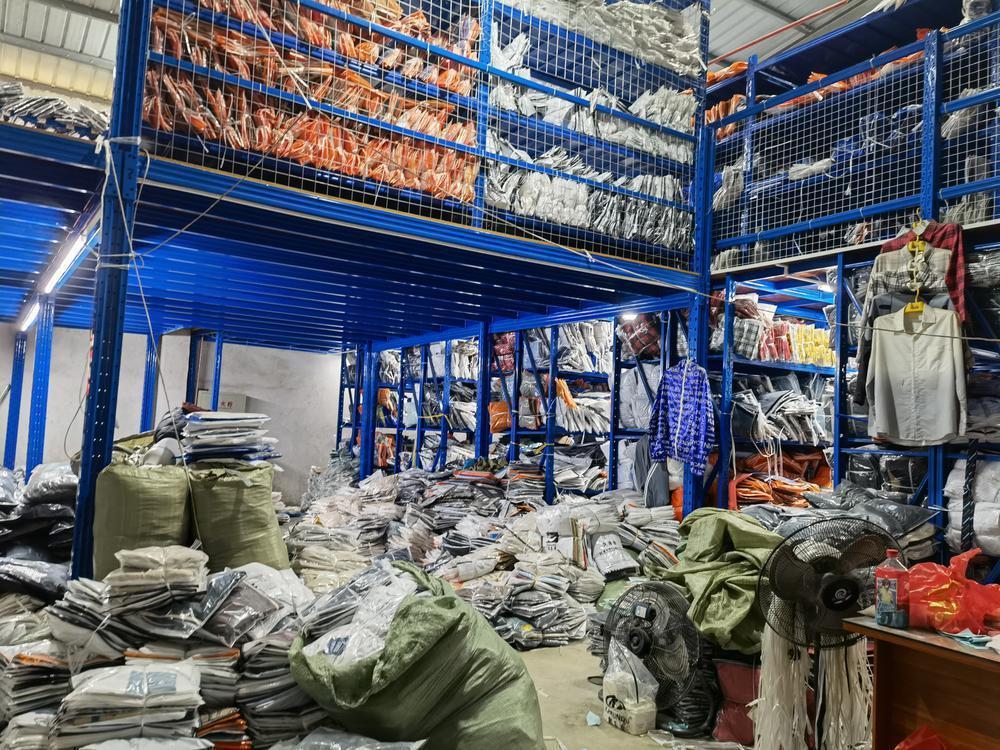
In October 2013, the Jieyang government set up an office for e-commerce development, which was located at the Junpu School in Junpu.
The guidance and support of a series of policies have fueled the raging e-commerce fire. In December 2013, Junpu was selected as one of the first 14 Taobao villages in China by Alibaba, making it the only one in eastern Guangdong. By September 2014, the number of online shops in Junpu had exceeded 3,000, which had doubled year-on-year, with a soaring number of e-commerce workers from over 1,000 to nearly 5,000.
In 2014, the e-commerce industry in Junpu entered a track of rapid development.
Seeking a breakthrough in the quality development
For a long time, products from Junpu's e-commerce business were mainly youth clothing for the low-end market. The low and affordable price contributed a lot to the rapid development of Junpu's e-commerce model at first.
After a regional e-commerce hub took shape, Junpu launched a full-scale plan to build an e-commerce town and enhance its brand, which then became an important issue for the continued high-quality development of the village.
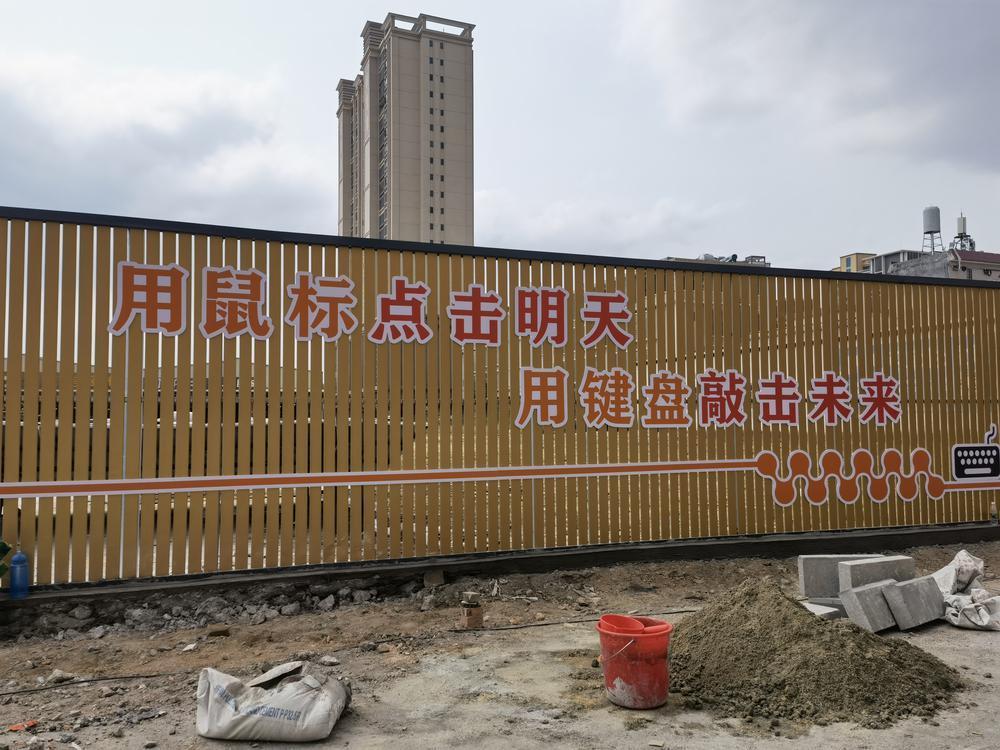
In February 2022, the State Council agreed to establish the China (Jieyang) Cross-Border E-Commerce Comprehensive Pilot Zone. In November of the same year, Jieyang Chuang Yuan Supply Chain Management Co., Ltd. set up the city's first overseas warehouse in Bangkok, Thailand, and completed its first export order. By 2022, this company had cultivated 18 cross-border e-commerce entities and achieved an import and export value of 220 million yuan by cross-border e-commerce.
特别报道丨揭阳军埔:十年间的电商奇迹
一年发出 37 亿件快递、日处理快递量(进口和出口)达到2600万件,粤东小城揭阳力压上海、杭州两座大城市,在国家邮政局今年 3 月公布的2022年快递业务量榜单中位居全国第四,仅次于义乌、广州和深圳。
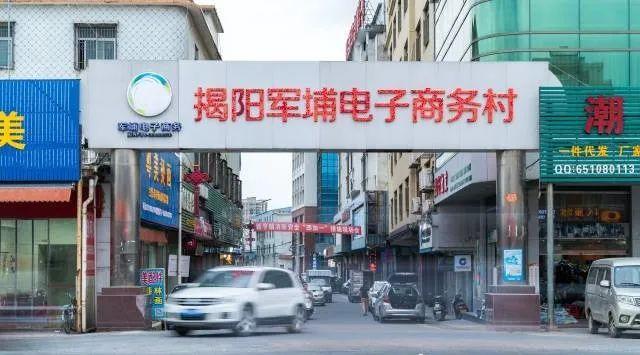
创造揭阳电商奇迹的,是一个面积只有0.53平方公里的军埔村。这里2013年由 12位本地青年返乡创业开启向电商转型发展之路,到 2022年电商销售额50亿元,吸引电商从业人员5000多人,带动全镇3万多家网店集聚发展。
12位青年点燃电商火种
揭阳市揭东区锡场镇的军埔村,原本是以食品产业为主的自然村落,慢走向被市场淘汰的边缘。年轻人纷纷外出务工,村内的基础设施逐渐凋敝。2011年底,在揭阳市梳理出的79个“问题村”中,军埔村赫然在列。
在外出务工的浪潮中,黄伟鸿、许壮滨等几个军埔青年,机缘巧合中在广州十三行等地接触到了淘宝店。几年后,由于一线城市的经营成本抬升,他们试着将“网上的生意”搬回家乡。这12位青年,被当地人称为军埔村的“十二罗汉”。
此后“一传十,十传百”,到2013年6月,经过一年左右的自发发展,军埔村形成了100多家网店,14家实体店的“电商村”雏形。
政策扶持为电商之火添动力
军埔村不断增加的网址 IP 如同星星之火,引起了揭阳市相关领导的注意。
2013年10月,揭阳市成立了电子商务办公室(以下简称电商办),并将电商办的办公地点设置在军埔村的军埔学校。
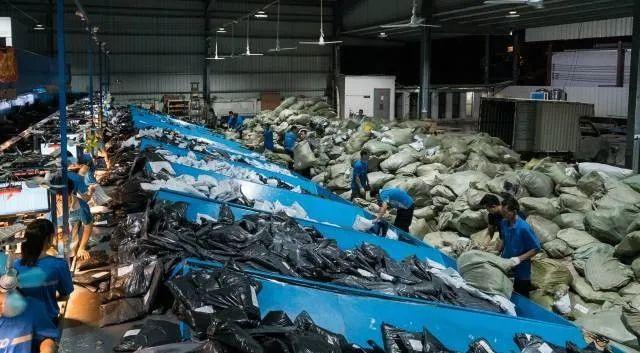
系列政策的引导和扶持力量为这把熊熊燃起的电商之火添加燃料。2013年12月,军埔村入选了阿里巴巴集团评选的首批14个“中国淘宝村”,成为了粤东地区唯一的“淘宝村”。2014年9月 ,军埔村网店数量已经超过3000家,同比翻了数番,电商的从业人数也从1000多人飙升至近5000人。
2014年,军埔村电商进入了高速发展阶段。
在“质”变中寻求突破
长期以来,军埔村电商经营的产品以中低端青少年服装为主,军埔电商模式早期的快速发展,也主要源于其低廉亲民的价格优势。
在形成区域电商集聚中心之后,军埔电商全面铺开电商小镇的建设及擦亮军埔的电商品牌,成为了军埔村继续高质量发展的重要课题。
这一次,揭阳想要抓住的是跨境电商的风口。2022年2月,国务院同意设立中国(揭阳)跨境电子商务综合试验区。同年11月,揭阳市创元供应链管理有限公司在泰国曼谷仓设立了揭阳首个海外仓,并完成首单出口。截至2022年,揭阳市培育跨境电商主体18家,实现跨境电商进出口额2.2亿元。
文、图 | 羊城晚报全媒体记者 孙绮曼、许悦、沈钊
翻译 | 陈萱









